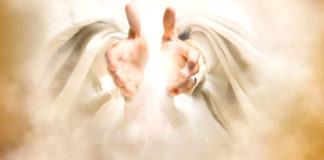Free to make decisions for only 10% of the time
Of the approximately 26-28,000 days (73-79 years) that the average person lives, only a maximum of 10% of that time is actually spent as an adult making decisions about what to do. The rest of our time is spent in activities that are generally unavoidable.
The fragility of the good news about COVID-19 mortality
The mortality rate of COVID-19 remains high, but not as high as its transmission rate, and this good news needs nuances and explanations.
Pocket apocalypse: The end of the world in the press
The image of an apocalypse generated by a microscopic coronavirus has been sketched more than once by the press in the past few weeks.
Vitamins, explained from A to K
We all know that vitamins are good for us. Many of us take supplements to boost the supply of vitamins in our bodies. However, it wasn’t until 1912 that Polish biochemist Casimir Funk actually came up with the concept of vitamins, which he called "vital amines."
The dictatorship of tolerance
"Borg creatures. A highly advanced race of predators. They have no conscience. No ethic. Chances are, it has already infected your community, your schools, your church—even your children. This real-life threat is called 'the new tolerance', a simple phrase that describes a complex modern doctrine" (Josh McDowell).
What does Philadelphia look like and where can we find it?
“Go instead to my brothers and tell them, ‘I am ascending to my Father and your Father, to my God and your God’” (John 20:17).
Antipapism: realism or paranoia? (I)
In late 2015, famed neurosurgeon Ben Carson, who was running for the Republican presidential nomination, became the target of scrutiny and innuendo from some in the media, who used the moment to turn his religious identity on its head. Ben Carson is a Seventh-day Adventist, and people wanted to know how Adventism influences his thinking. Carson lost the election race, but won a...
Created with a need for rest
Work has been part of God's plan for mankind since creation, but so has rest. Setting wise boundaries between work and rest is not only a successful strategy for maintaining our productivity, it also reflects on the health of our relationship with God and our fellow people.
The surprising effects of music on the brain
People have always loved and cherished music, investing time into both composing and listening to it. Journalists from The New York Times sought to find the reason behind our deep attachment to this intangible thing that, for most of us, yields no material gain.
25 million reasons
The Caribbean has long been considered paradise by many tourists. For many of those living there, however, the images of lofty palm trees, white sandy beaches and crystal-clear waters mask an underbelly of drug running, gang-related violence and prostitution. Human trafficking is an issue many nations are struggling to cope with, and the Caribbean island of Trinidad is no different.
COVID-19: A hundred remedies for solitude
I open the window and breathe in the air, trying to guess the weather. Floating around, mixed, are scents and miasms alike; it's hard to decipher these intricate clues.
The young man who brought us the mirror
In the case of the well-known tension between the church and the younger generation, only one conclusion is possible. It’s not hard to figure out what we’re missing, it’s just hard to accept—on both sides.
The ties of love
“Truly I tell you, if you have faith as small as a mustard seed, you can say to this mountain, ‘Move from here to there,’ and it will move. Nothing will be impossible for you” (Matthew 17:20).
For a clear conscience we must drive away negative thoughts. True or false?
There is a huge volume of literature, in bookstores and online, which contain recommendations for a more enjoyable life, in accordance with the hidden skills of each one of us. One of the great secrets put forward is freeing the mind from all negative thoughts.
The missing filter
At a time when the abundance of information makes it imperative to talk about information hygiene, critical thinking should be the first missing filter we talk about.


























